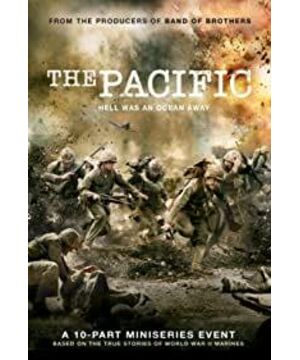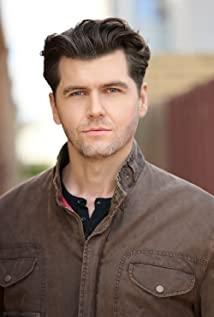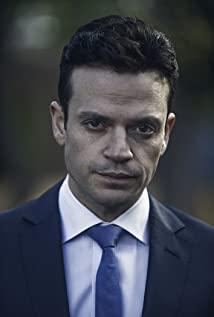I knew before that war will bleed, war will make people lose their bottom line, morality in war will become irrelevant, and love between children will not be outdated and distracting in war.
What I didn't know was that it would be so unreasonable, that it would be so cruel, that it would join forces with everything and torment all the good things that human beings can think of.
The Pacific War, instilling these things in me so abruptly, and suddenly lost in an unknown sadness, I felt compelled to write something.
I don’t really want to think about the game of great powers hidden after the Pacific War, nor do I want to know those so-called historical values. What I pay attention to are the marines who are tossing in the waves of the Pacific Ocean. , Ryukyu, the most vicious Japanese soldiers in Okinawa.
I have also been thinking about what kind of destructive weapon was used in the war to cause such undoubted harm to the soldiers. However, from Eugene's eyes at the beginning of the film, I reckon that war definitely has a unique charm. The war that attracted so many young people to participate actively is to whitewash their natural ugliness with the patriotism and heroism of the people.
But cruelty and sinister do not stigmatize a war. We must combine the indispensable meaning of just war for those beautiful things. War takes lives and saves lives, and even more lives.
But this does not mean that the people who died in the war became insignificant, they were not sacrifices for the so-called greater good. Their pain and misery cannot be downplayed by the writers of history with empty words like patriotism and just war. For those who gave their lives, nations, a greater future for humanity never came. It's not fair if we still choose to ignore the suffering of those we are not entitled to ignore.
The movie is very loose. At first, I didn't think it was going to explore any big propositions. It just explained everything about the Pacific War in a stitch-by-line manner. The fatigue and pain of those ordinary soldiers, to the carnival of Melbourne when they are temporarily resting. Those flashes of love, unbreakable cares. We are reminded over and over again that these people are just us with guns, ordinary people with flesh and blood, joy and sorrow.
Their desire for happiness can only become an extravagant hope, because the root of all this, life, they cannot guarantee. In this case, the hope with nowhere to stay is another cloud of haze floating in the already gloomy sky. Is the love between Lackey and the Australian woman not moving? But the unseen future at the last moment destroys the heart-to-heart bond of a pair of lovers. You cannot ask a man to promise his future to a soldier who goes to the front.
But Basilone's wife made another choice. She did promise a soldier who went to the front line, and received a fate that was not unexpected. His husband died. I think the inside of this tearful story is just another tragedy brought about by war. Reiner is also an officer. She understands the helplessness of a soldier. She understands the powerlessness brought by war better than anyone else. .
This sense of powerlessness makes some people's normal feelings can only become stories in fairy tales.
The most shameless thing about war is that while it is trying to weaken the beauty of people, it is constantly magnifying the ugliness that those people can't bear. We often call it cruelty.
This cruelty, always heard, we have dulled our perception of it. The cruelty shown in the film is definitely not the same word as what we usually talk about. I don't want to describe what the cruelty looks like here. All I can say is that the cruelty has surpassed the limits of the human body's ability to endure, has flown beyond the limits of human imagination, and has challenged the humanism that has been spoken of thousands of times. , took away the fig leaf of the ugliness of human nature.
Eugene's father was right when he sent Eugene into the army to worry that a man who had seen too many killings would become unsympathetic and insensitive. Undoubtedly, in the characterization of this film, the Japanese army is the most cruel. Their cruelty is not the kind of violence only towards others, but also cruelty towards themselves. They are simply animals lacking self-awareness and empathy.
The film lacks a positive portrayal of the Japanese soldiers. At present, I cannot conclude that the Japanese army is such a group of beasts in real history, and the US military is the messenger of justice. But as a matter of fact, the cruelty of the Japanese army revealed that in the war a soldier was deprived of the most precious self-awareness, and they were reduced to tools and things that did not need emotion.
But can anyone really achieve such detachment? I don't think so, anyone sees killing too much, especially when life is lost so easily, especially when the life of a close person is lost so easily, either you start to resent, start to doubt, or you start to be cruel , began to numb.
And the numb will eventually fall back into the pain of resentment and suspicion at the end of the war, a curse that cannot be escaped.
What is worth thinking about is that compared with the crazy momentum of the Japanese army, the US military appears to be much calmer and more emotional. The Japanese army can regard the life of its own citizens as a must, but the US military can help the Japanese civilians. The difference here is actually not difficult to find. It is the difference in national character, and this national character is another complex thing. It can be said that the first is the difference in government, democracy and monarchy, and the second is the difference in cultural traditions, the basis of Bushido and Puritan culture. These differences have resulted in very different attitudes towards life between the two soldiers. In the end, the cruelty of one party caused the pain of the other party, and the pain of the other party turned into cruelty, forming a vicious circle of mutual torture. It was always the soldiers who were wounded.
This kind of feeling of watching life pass by, people who have not experienced it, such as us, are really unconvincing to talk about it here. But I can be sure that the pain caused by this is certainly immeasurable.
These scars, like those on a soldier's body, last a lifetime, but are also a sign of honor. These pains mean selfless giving and mean that each of us owes something to these warriors. But these honors and glory can only be a relief after the fact, and should not be a bargaining chip and reward for recruiting soldiers before the war.
I think the biggest inspiration from a brutal war is that soldiers must understand what they are about to face and what they are about to endure before participating in the war. War cannot allow retreat, but I believe it should allow fear.
If this can become a consensus, maybe it can break the curse of war that has tormented mankind for thousands of years, avoid his occurrence, or at least reduce the number of his arrivals.
I think the pain of soldiers is the most precious thing in a war.
View more about The Pacific reviews











